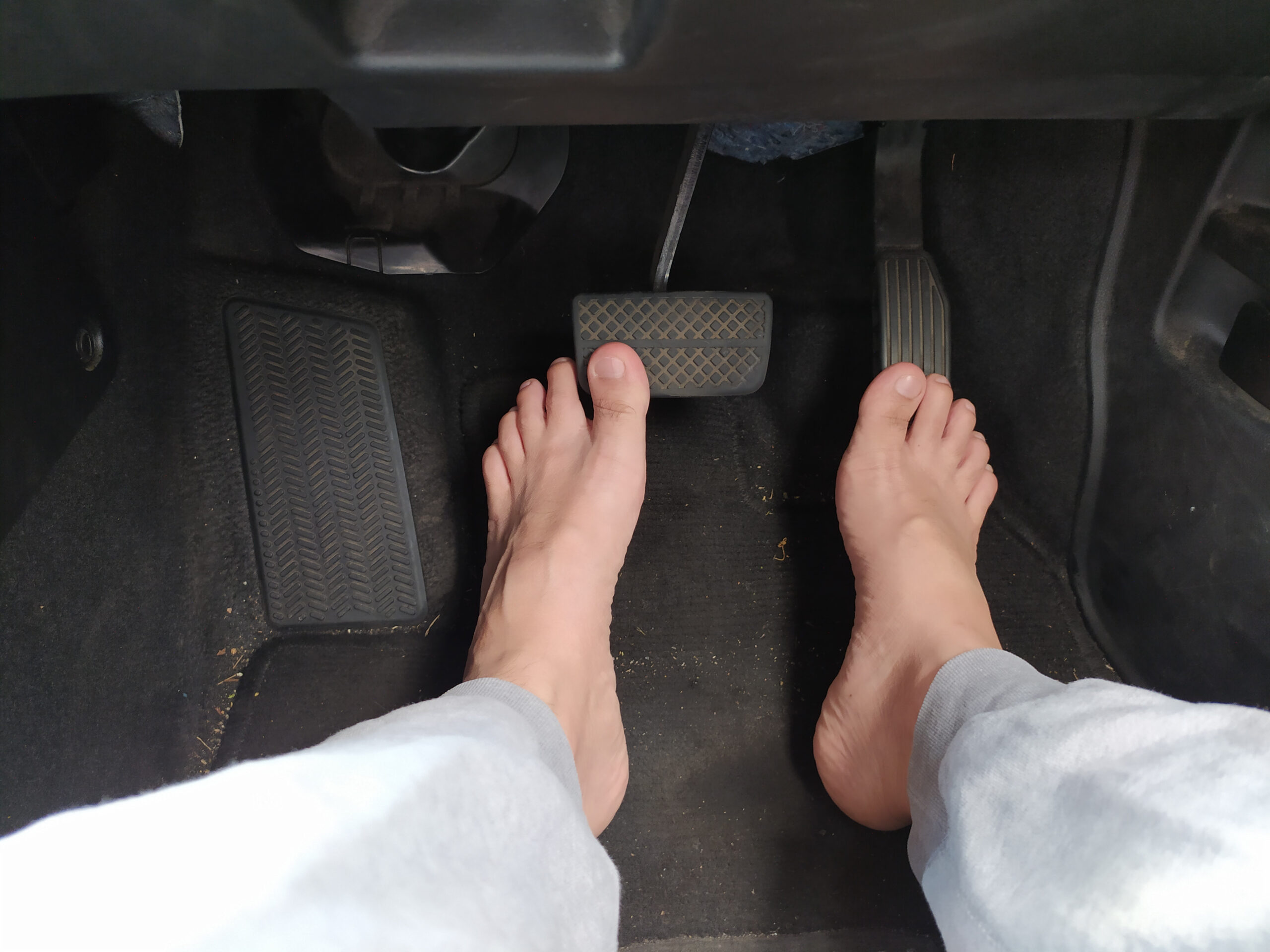Is it illegal to drive barefoot or with sandals?
Understanding the legality of driving barefoot or with sandals in Australia is essential for ensuring compliance with local regulations and promoting safe driving habits. While some may question, “Is it illegal to drive barefoot or with sandals?” the answer varies across regions, yet generally, it remains permissible in most Australian states.
The focus here is not only on legality but also on safety considerations. Driving without proper footwear—whether it be bare feet, sandals, or thongs—can affect control over vehicle pedals, potentially leading to unsafe driving conditions. Prioritizing safety by wearing appropriate footwear is crucial.
However, should any legal issues arise from an incident related to driving without proper footwear, it’s important to understand your rights and options. Consulting with a legal professional can provide valuable insights into navigating such situations. For instance, if you find yourself needing assistance with loan agreements due to unforeseen circumstances resulting from a driving incident, it’s essential to have a knowledgeable lawyer by your side.
Moreover, if the situation escalates into a personal safety concern, understanding personal safety intervention orders could be beneficial. These legal tools are designed to protect individuals from stalking or harassment and could play a crucial role in ensuring your safety.
Key takeaway: While it’s not explicitly illegal to drive barefoot or with sandals in most Australian jurisdictions, adopting best practices for safety is paramount. This comprehensive guide will delve into the specifics of both legal and safety aspects concerning driving footwear choices across different states in Australia.
Understanding Legal Regulations on Driving Footwear in Australia
Australian traffic laws are designed to ensure road safety and proper behavior among drivers. While these laws are extensive, they do not specifically state any requirements for footwear while driving. This lack of specific legal requirements means that individuals are generally allowed to drive barefoot or with sandals in most Australian states.
Explanation of Driving Laws Related to Footwear Choice
Australian traffic regulations mainly focus on the safe operation of vehicles rather than dictating specific footwear choices. The key factor here is whether the driver’s choice of footwear affects their ability to safely control the vehicle. Authorities emphasize that drivers must always have complete control over their vehicles, which indirectly suggests wearing suitable footwear that provides stability and grip.
Overview of Regulations Regarding Footwear
- No Explicit Prohibition: In most states, there are no explicit laws prohibiting driving barefoot or with sandals.
- Emphasis on Control and Safety: The guiding principle is that footwear should not hinder a driver’s ability to effectively manage the vehicle’s pedals. Drivers are encouraged to select shoes that allow for secure pedal manipulation.
- Potential Legal Consequences: While it may not be illegal in itself, wearing unsafe footwear could potentially impact liability in the event of an accident if it is considered a contributing factor.
The absence of direct legislation does not absolve drivers from prioritizing safety. Each state may have slightly different interpretations regarding what constitutes safe driving practices, which will be explored further in the sections focusing on state-specific regulations.
For example, in Victoria, there are recent updates concerning medicinal cannabis and driving laws, including THC testing and prescription requirements. Additionally, the state has strict penalties for drug driving offenses, which includes mandatory licence loss.
These examples highlight how legal regulations can intersect with various aspects of driving, emphasizing the importance of understanding local laws.
State-Specific Laws on Driving Footwear
New South Wales (NSW)
In New South Wales, the question of whether it is illegal to drive barefoot or with sandals surfaces frequently among drivers. The legal framework in NSW does not explicitly prohibit driving without shoes or in sandals. This leads many to wonder about the implications for safety and control when choosing such footwear. While the law permits this practice, it is crucial to recognize that any footwear—or lack thereof—should not impair a driver’s ability to operate a vehicle safely.
Safety Concerns
Driving barefoot or wearing sandals can potentially reduce the driver’s grip on the pedals, presenting a risk of slipping. This becomes particularly relevant in situations requiring quick responses, such as emergency braking.
Legal Stance
In NSW, while there are no specific driving laws by state that forbid barefoot driving or using sandals, authorities emphasize safe driving practices. The Roads and Maritime Services (RMS) advises that drivers should ensure they maintain full control over their vehicle at all times.
Insurance and Liability
From an insurance perspective, if an accident occurs and it’s demonstrated that barefoot driving or improper footwear contributed to the incident, this could affect liability assessments. Insurance companies might view it as a factor of negligence, impacting claims processing and outcomes.
Practical Recommendations
For those who prefer open footwear like thongs or choose to drive barefoot, carrying appropriate shoes in the vehicle is advisable. Switching to these upon reaching a destination ensures compliance with recommended safety standards without compromising personal comfort.
The nuances of these regulations underscore the importance of prioritizing safety alongside legal compliance. While the absence of explicit prohibitions offers flexibility, exercising caution remains paramount for all drivers navigating NSW roads.
Furthermore, if you find yourself facing legal challenges related to driving violations such as driving whilst suspended, it’s essential to understand your rights and obligations under the law. Seeking professional legal advice can provide clarity and guidance through any potential court proceedings that may arise from such incidents.
Victoria (VIC)
In Victoria, the laws regarding driving footwear are similar to those in other Australian states. The state regulations do not explicitly prohibit driving barefoot or wearing sandals. This means that technically, individuals are allowed to drive without shoes or in unconventional footwear like thongs or sandals.
However, despite the absence of specific laws against barefoot driving, it is important for drivers to be cautious. The main rule is that drivers must always have full control over their vehicle. If wearing sandals or going barefoot affects this ability, it could be seen as negligent under broader VIC regulations. Such negligence could potentially lead to charges related to unlawful assault if things escalate, emphasizing the importance of maintaining control.
This viewpoint is consistent with the general theme across different states—while there may not be a direct ban, safety concerns should not be ignored. Drivers should be mindful of their choice of footwear, taking into account factors such as grip and pedal control. In situations where improper footwear contributes to an accident, liability issues may arise, potentially affecting insurance claims and legal proceedings.
Understanding these details in driving laws by state helps ensure compliance and creates a safer driving environment for all road users. It is also recommended for drivers to seek advice from legal experts like Layal Obeid, who have extensive knowledge in various areas of law including driving regulations and can provide valuable guidance.
Queensland (QLD)
In Queensland, the driving laws concerning footwear are not explicitly restrictive. There are no specific state regulations prohibiting individuals from driving barefoot or wearing sandals, such as flip-flops or thongs. While the absence of a direct prohibition might suggest leniency, it is crucial to understand that the overarching legal framework prioritizes safety and control over the vehicle.
Key Points to Consider:
- Permissibility: Driving barefoot or with sandals like flip-flops is generally permitted under QLD rules. However, this should not overshadow the necessity of maintaining proper control over vehicle pedals.
- Safety Recommendations: Although legally permissible, driving without secure footwear can compromise grip and pedal control, leading to potential safety hazards. This aligns with broader guidelines across Australia that emphasize safe driving practices.
- Liability Implications: In cases of accidents or traffic violations, the choice of footwear could be scrutinized as a factor influencing driver negligence. Ensuring optimal pedal control with appropriate shoes may mitigate such risks.
Understanding these nuances within Queensland’s legal landscape underscores the importance of informed decision-making when it comes to choosing suitable footwear for driving. It’s also worth noting that in certain circumstances, such as persistently contravening a personal safety intervention order, legal repercussions can extend beyond typical traffic laws, emphasizing the need for compliance and safety in all aspects of driving.
Liability Considerations When Driving Without Shoes
Driving without proper footwear presents significant liability issues that could impact the outcome of legal proceedings following an accident. The choice of footwear, or lack thereof, plays a critical role in determining negligence and liability.
Footwear as a Factor in Negligence
In the event of an accident, insurers and legal authorities may scrutinize your driving conditions, including your footwear. If it is found that being barefoot or wearing sandals contributed to impaired vehicle control, this could be deemed a contributing factor to negligence. This assessment can influence the apportionment of fault and potentially affect compensation claims.
Impact on Accident Consequences
Accident investigations often consider all variables that might have affected driver performance. Inadequate footwear might not only hinder one’s ability to operate pedals effectively but also exacerbate the consequences of an accident by increasing stopping distances or causing delayed reactions.
Legal Perspective
While most Australian states do not explicitly prohibit driving barefoot or with sandals, the overarching duty of care requires drivers to ensure their actions do not pose risks to themselves or others. Failing to maintain proper control due to inadequate footwear could be interpreted as a breach of this duty.
At EAS Legal, our commitment is to protect your rights and secure your future. Our experienced team provides personalized consultations to navigate these complexities, offering strategic solutions tailored to each client’s unique situation. For professional legal support regarding driving liabilities and other matters, please contact us for expert advice tailored specifically to your needs.
Frequently Asked Questions
Need to speak with a lawyer?
Our experienced lawyers are here to help you understand your legal rights and options. Contact us for a confidential discussion about your situation.


















